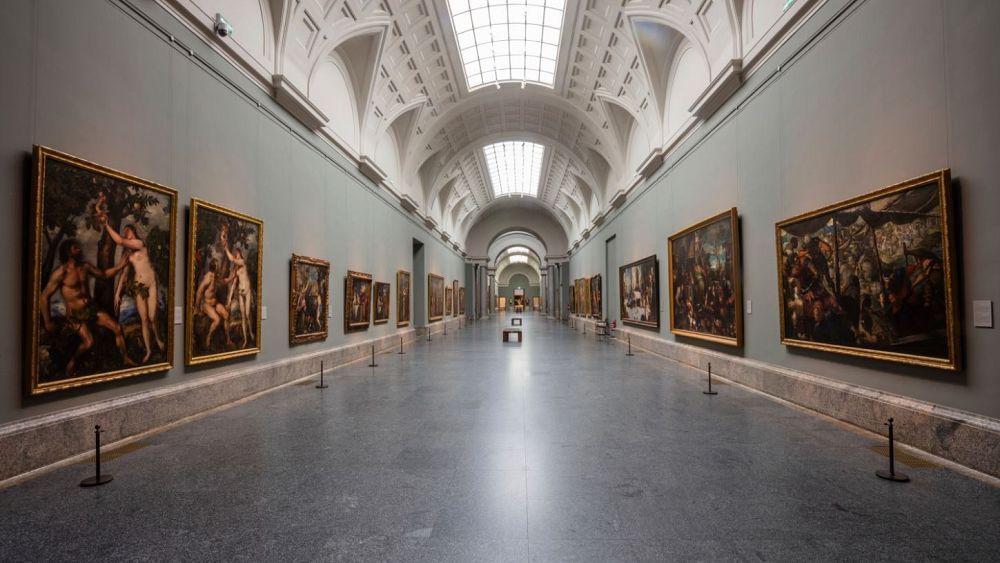
Survivors of a 1981 mass food poisoning in Spain have staged a protest at Madrid’s famous El Prado art gallery.
Activists from the organisation Seguimos Viviendo (“We Are Still Alive”) were pictured in front of the museum’s exhibitions on Tuesday.
The association represents victims of canola oil poisoning four decades ago that affected thousands of Spanish citizens.
Members of the group had locked themselves in the museum and threatened to commit suicide if their demands were not met.
“No more humiliation and abandonment,” said a statement on Seguimos Viviendo’s Twitter account.
The association had demanded a meeting with Spanish Prime Minister Pedro Sánchez, as well as additional government funds to cover medical expenses for the surviving victims.
The Cadena SER news outlet published a photo showing six protesters, including one in a wheelchair, in front of “Las Meninas”, a famous painting by Spanish artist Diego Velázquez.
The El Prado museum confirmed to Euronews that the protesters had been removed by security personnel on Tuesday after a short time.
The demonstration took place forty years after Spain pledged to support victims of the mass food poisoning outbreak.
Thousands of citizens suffered lung diseases and other incurable conditions in 1981 after consuming processed rapeseed cooking oil.
The oil was imported from France for industrial use but was sold to the population for consumption in plastic jugs through street stalls across Spain.
Nearly 5,000 are believed to have died from poisoning, while more than 20,000 others were affected. Over 18,500 citizens have received compensation, although many more are still yet to claim financial aid.
In March 1987, thirteen oil workers were prosecuted by the National High Court and sentenced to between six and 20 years in prison.